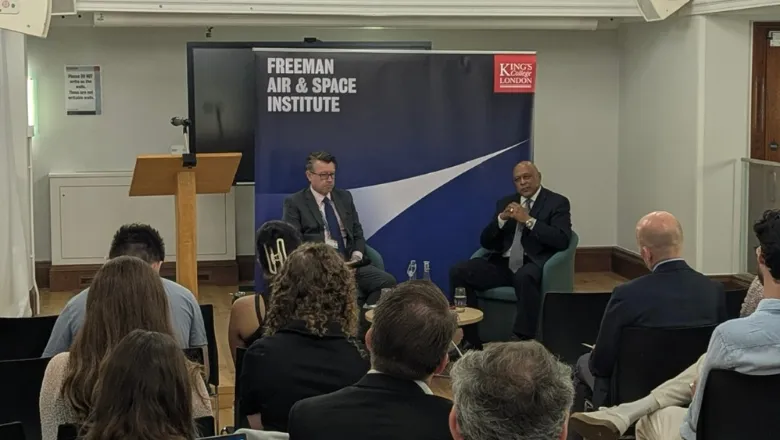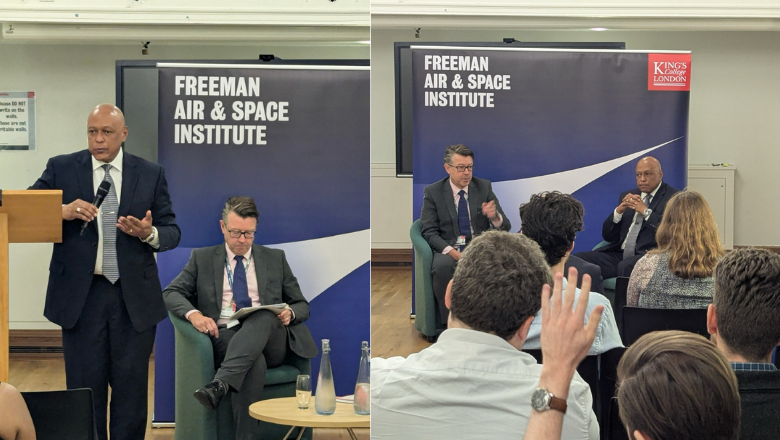The Commander of the United States Strategic Command (USSTRATCOM) - General Anthony Cotton - emphasised the importance of the next generation in meeting future global security challenges during a recent address at King's College London. He stated: "We must build future strategic and modern thinkers that can modernise, innovate and pioneer new ways of thinking so we can meet tomorrow's global challenges."

The event, titled, 'In Conversation with USSTRATCOM,' took place on Friday 31July and was jointly hosted by the Freeman Air & Space Institute (FASI) and the School of Security Studies.
Professor Wyn Bowen, Head of the School of Security Studies and Co-Director of FASI, welcomed General Cotton for an exclusive short lecture to King's Secuirty Studies students and early career professionals from across The Ministry of Defence, who then had the rare opportunity to pose questions directly to the General.
General Cotton, who is responsible for one of eleven Unified Combatant Commands under the United States Department of Defence, introduced the work USSTRATCOM is responsible for, highlighting the organisation's focus on nuclear operations, global strike, missile threat assessment, strategic deterrence, missile defence, joint electromagnetic spectrum operations, and nuclear command, control, and communications.
Echoing the theme of this year's London Defence Conference, which was hosted at King's in May, as well as key takeaways from the UK's recently released Strategic Defence Review, General Cotton went on to highlight the importance of alliances and collaboration in today's demanding geopolitical climate. He noted how the international efforts from both the UK and U.S. continue to impact the future of defence and security across the globe.

Questions from the audience included topics on deterrence labour, third party influencers and transactional international relationships.
The first question of the Q&A session - from a King's War Studies student - was on nuclear deterrence, with the General describing it as "foundational to national and international security."
When asked how he measures success in his post and in deterrence, General Cotton explained, "We need to make sure every leader is not only informed about the threats we face but also empowered to respond decisively." He added: "Ultimately, the most profound measure of our success is the absence of conflict."
To an audience who, he observed, would have been just two years old prior to the 9/11 attacks in the U.S., the General described how modern threats have evolved, explaining: "The landscape is far more complex today compared to the Cold War." He added: "It demands an integrated global response, where the capabilities of all nations combine to deliver worldwide security and stability."
He concluded by highlighting how the next generation of strategic thinkers - represented in the room - will be pivotal to guiding that discussion forward and shaping the future of deterrence.
----
The Freeman Air and Space Institute (FASI) sits within the School of Security Studies at King's College London, providing independent and original research and analysis of air and space power issues.
To keep informed about the latest research, opportunities and events from FASI, subscribe to their mailing list or contact the team at






